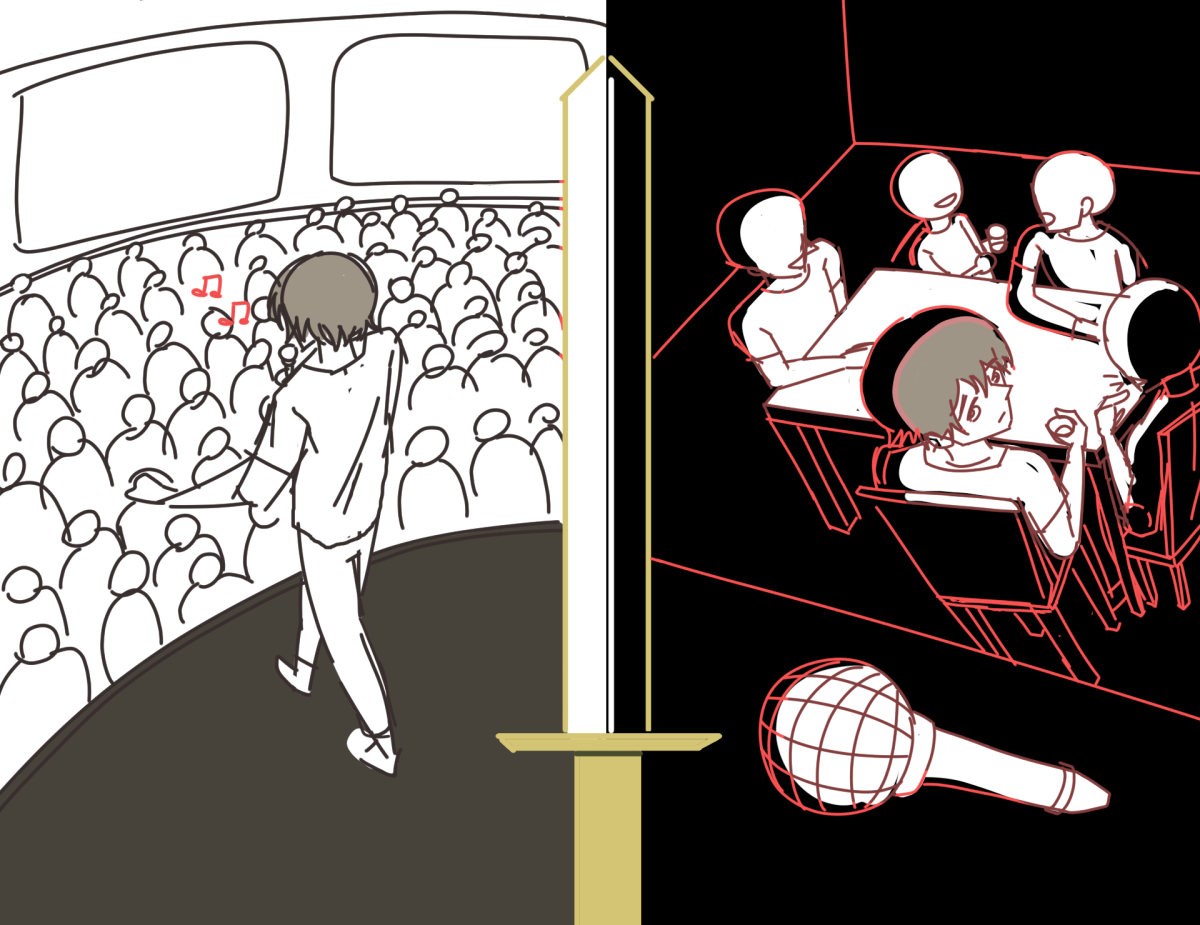Rather than sleeping, finishing homework or doing anything else that might promise greater excitement, I opted to sit through two hours of a Student Senate meeting Wednesday. To my surprise, the meeting was far more captivating than others’ representations, including a recent Technician column, had made it out to be.
After roll call and the opening pledge of allegiance, the senate floor was opened up to 15 minutes of public comment, which I found to be an excellent gesture toward student involvement in our governing body. Nonetheless, only a couple of minutes were utilized — these by the president of InterResidence Council to make a few announcements about the organization.
This was a trend I observed throughout the night: while the Senate tries to be accessible to the student body, students largely fail to reciprocate interest, even where their input would be valuable to the discussion. Greater involvement would likely improve outcomes from the student perspective, as Senators are left to consider legislation with only their own conceptions of students’ best interests.
Take for instance the most heavily contested bill of the first segment of the meeting: SR 34, the Student Center Operations — DASA Fee Act. Debate on this bill and several proposed amendments took about an hour, exceeding the total time spent on the other four bills considered before the recess.
At issue was a proposed student fee increase by $2 for DASA and a separate increase for Campus Enterprises by $3 for undergraduates and $1.50 for graduate students.
Whereas the DASA fee was unquestioned, the CE request garnered intense conflict. First, Sen. Adam Schmidt, a second-year studying civil engineering, proposed an amendment setting the CE fee increase to $3 for both graduate and undergraduate students, arguing that to split fees based on a perceived difference in usage would open a dangerous “can of worms,” to use Schmidt’s analogy.
After a round of questioning of the relevant authorities, the amendment passed. Notably, a representative from the Graduate Student Association attested that GSA had not suggested the fee split. The GSA had in fact prepared a report, voted on by its members, that expressed graduate students’ views on each of the proposals up for consideration during the meeting.
In the contentious debate, the fact that graduate students could present their perspective, unambiguously and on their own terms, shaped the discussion considerably. The GSA representative and a few graduate student senators cohesively presented their concern that graduate students, who often live off fixed stipends, can scarcely afford substantial fee increases for services from which they feel they receive no direct benefit.
While ultimately the bill passed with a $3 funding level, higher than the $1.50 recommended by the GSA report, the well-organized effort by the graduate students certainly brought their perspective to the forefront of the debate.
Two other amendments to the bill sparked debate over Campus Enterprises’ existing cash reserves. Some senators found the idea of Talley closing at 10 p.m., two hours earlier than at present — floated by a CE representative as a measure to reduce costs — unacceptable due to studying hours of students. Still, others suggested that CE’s cash balance would be more than enough to cover the spending deficit, making it unnecessary to substantially raise the fee.
Although Senate does not have direct authority over the final decision, their recommendations are seriously impactful on the university’s ultimate choice. With SR 34, greater student input would ensure that the outcome reflected the interests of students. After all, the main point of contention was whether or not it was acceptable to risk a cut in Talley’s operating hours in order to save students thousands of dollars in fees. This choice was then entirely subjective, but with consequences for all students.
It was the perfect canvas for student input, if only students were willing to be involved.
Not all bills that come before the Senate are as contentious or as impactful. Resolutions 45 and 46, supporting an already-funded Lake Wheeler composting site and NC State’s storm readiness policy, passed unanimously as the first bills on the agenda. But bills like SR 34, which present tangible sources of argumentation, also show up on the agenda. As this legislation is publicly available and takes only a few minutes to read, there is no reason why students cannot inform themselves of the Senate’s activities and act on important measures.
While action may take the form of attending meetings, an equally powerful way of voicing your opinion is to read the bills being discussed and contact your senator about any that seem impactful. Although their website is currently “under technical updates,” Student Government will eventually have senators’ information so students can reach out to their representatives. Finally, as in any democracy, voting is a key form of involvement, so all students should watch their emails for information on future elections.
We elect senators to serve our interests, but there is no way to hold them accountable if we do not express our own perspectives during the course of their term. Student Senate offers a remarkably powerful means of voicing our opinions to the administration, but this body is only as effective as we make it with our awareness and participation.





